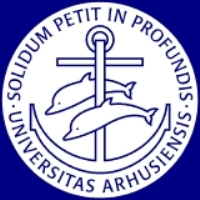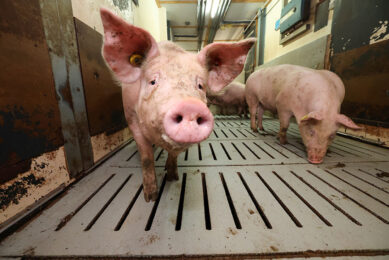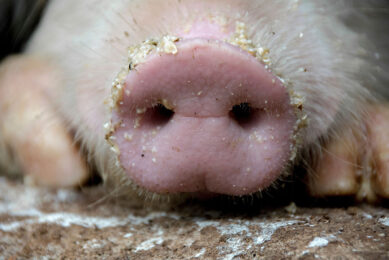Danish try to find way around piglet castration

Several studies at the Danish University of Aarhus show that raising male piglets without castration and selling their meat is most certainly feasible.
One study dealt with the question to slaughter male pigs early to avoid castration, so before they are sexually mature.
In a study at the Faculty of Agricultural Sciences at the University of Aarhus, non-castrated male pigs were slaughtered at a weight of maximum 45 kg. The pigs were organic and had had a free-range existence with their littermates until slaughter. The meat was therefore not only of a high gastronomic quality but also came from animals with a high level of animal welfare.
Meat quality
The study was carried out at the organic research farm Rugballegaard belonging to the Faculty of Agricultural Sciences, University of Aarhus, and at commercial organic farms. The quality of the meat was good.
The next step is to ensure marketing possibilities. Once the farmer decides not to castrate his male pigs, the animals cannot be sold as regular porkers to the slaughterhouses. In addition, the carcass size does not fit into the routines at the slaughterhouses. Therefore, solutions must be found at the slaughterhouses and with regard to marketing.
“The price for this type of meat would without a doubt be higher than present prices, but we believe the product is so good that the consumers will demand it once they have tasted it,” said project leader John Hermansen from the Faculty of Agricultural Sciences.
The project, financed by the Danish directorate for food, fisheries and agri business, the animal protection agency, and Friland Food, will continue until 2009.
Chicory roots
A second research at the Faculty of Agricultural Sciences, University of Aarhus, focused on the use of using chicory roots from the chicory plant to reduce boar taint and thus to make castration of male pigs redundant.
Boar taint is primarily caused by androstenone and, in Danish pigs, primarily skatole, which is formed in the pigs’ intestinal flora. The sugar inulin, which is found in chicory roots, inhibits the formation of skatole.
Results from studies show that a mere week’s feeding with chicory roots immediately prior to slaughter reduces problems with boar taint. Two weeks of chicory feeding gives an even better result.
The intestinal flora is altered, which also results in fewer intestinal parasites in the pigs. In addition, chicory roots reduce the prevalence of swine dysentery and Lawsonia, which are two serious types of diarrhoeal diseases.
In order for chicory to have an inhibitive effect against these diseases, the pigs must be fed with it during the entire period from weaning to slaughter.
The studies were carried out by scientists from the Faculty of Agricultural Sciences in collaboration with scientists from the Faculty of Life Sciences, University of Copenhagen, and the National Food Institute at the Technical University of Denmark.
Interest
The first results were published in 2005. Since then, many farmers have shown interest in using chicory in their pig production. However, there is still a need for further research and development of chicory feed.
It is also necessary to investigate other natural alternatives to castration. Studies indicate that feeding lupines to the pigs may also reduce boar taint.
Organic farmers have been particularly interested in methods that avoid castration. The studies are part of the organic research programme, which is coordinated by the Danish Research Centre for Organic Food and Farming and financed by the Ministry of Food, Agriculture and Fisheries.
Related website:
• University of Aarhus
• Faculty of Agricultural Sciences, University of Aarhus
Subscribe here to the free Pig Progress newsletter
Join 18,000+ subscribers
Subscribe to our newsletter to stay updated about all the need-to-know content in the pigsector, three times a week. Beheer
Beheer










 WP Admin
WP Admin  Bewerk bericht
Bewerk bericht